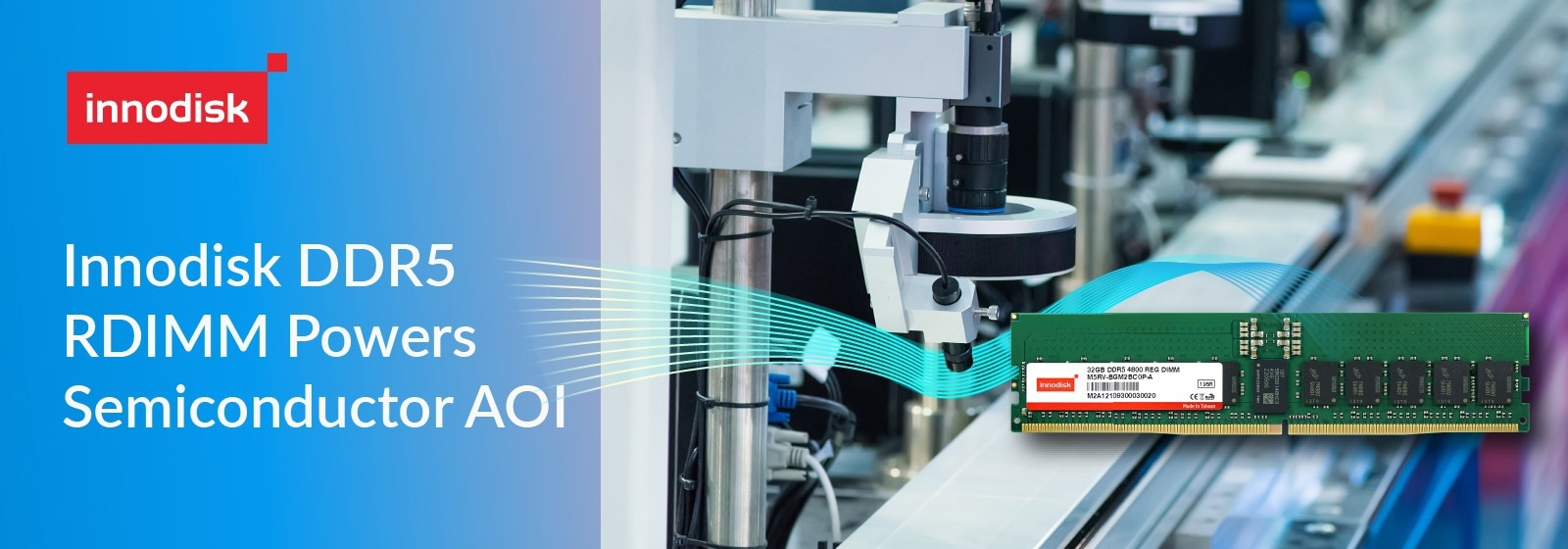Innodisk, a global leader in industrial-grade storage and embedded peripherals is proud to announce its solution to issues faced by Automated Optical Inspection (AOI) applications relating to, and caused by the shortcomings of consumer DRAM.

Image Credit: Innodisk
With the recent launch of Innodisk AI, which provides a complete AI solution for industrial integrators, DDR5 series DRAM plays a key role for a variety of applications, including Automated Optical Inspection solutions. With the rise in demand for semiconductors, and the trend towards smaller and smaller processes, the need for automatic systems to detect semiconductor production defects has grown significantly. AOI systems are now used at every step of the semiconductor manufacturing process, and their stability is paramount to production efficiency.
Modern AOI systems face three core issues that Innodisk’s DDR5 RDIMM (registered memory) help to solve: memory bandwidth, accuracy, and high temperatures.
Memory Bandwidth
Due to the high memory bandwidth needed for training models, AOI systems often struggle when lower capacity modules are used. Innodisk’s DDR5 RDIMM solves this issue with large capacities, including 32 GB and 64 GB modules.
Accuracy
Due to semiconductor processes going down to the nanometer level, the resolution requirement and accuracy requirements for AOI systems has increased. Innodisk’s DDR5 RDIMM features a new dual 40-bit sub-channel architecture, and supports rigorous side-band ECC, which can handle AOI’s high-accuracy detection demands.
High Temperatures
The high-speed and high-precision inspection that AOI systems provide generates high amounts of heat at the DRAM level, and this can cause overall system temperatures to rise sharply. Innodisk’s DDR5 RDIMM solves these heat concerns via a two-pronged strategy, involving an integration of both hardware and software. Two thermal sensors on the modules detect ambient temperatures, and two software tools: iCAP (Innodisk Cloud Administration Platform), and iSMART monitor temperatures and send warning messages.
Although memory technology is constantly being updated, Innodisk’s observation of the industry's current situation shows that customers' demands for new technologies vary greatly. Therefore, Innodisk not only provides the most complete industrial-grade DDR5 and DDR4 products, but also legacy products such as DDR3, DDR2, DDR and SDRAM. These memory modules will continue to be supplied with stable pricing, original IC, and the same great longevity support as all Innodisk products.